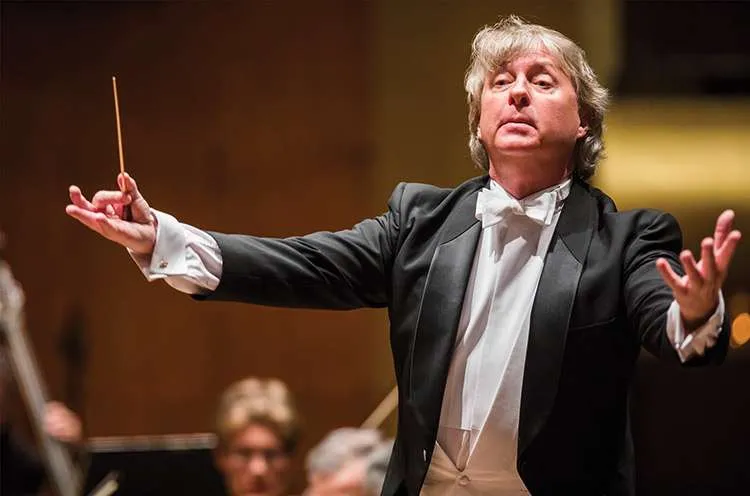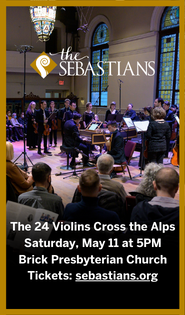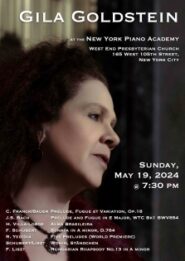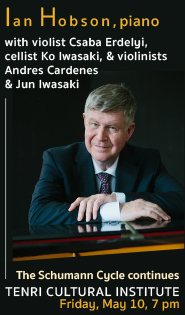Interminable Bencini oratorio requires Benzedrine for ACO audience

So much music has been made and played then lost or forgotten some way in history that there’s always a new experience to discover. That is one of the dependable pleasures of the early music movement, which not only brings obscure music to light but also, essentially, premieres ancient works.
That is what the American Classical Orchestra did Thursday night at Corpus Christi Church in a collaborative performance with the Academy of Sacred Drama titled “Gesù Nato.” The orchestra played music from an obscure composer and from one so forgotten that he essentially didn’t exist until this night.
The former and concert opener was two Psalm settings and a Magnificat by Antonio Gianettini, who had some reputation during the baroque era. The latter was Gesù Nato, a Christmas oratorio by Antonio Bencini, a work that was first played in 1742 and then never heard again until this concert. Discovering and recovering this was obviously an impressive feat of research. But there can also be a reason something was left on the shelf, and just because something is old doesn’t mean it’s valuable.
Gianettini’s liturgical music was not specifically meant for Christmas but the combination was something of a construction of a Christmas Eve service one might have heard at the Vatican long ago, as introduced in opening remarks from orchestra conductor Thomas Crawford and Jeremy Rhizor, the evening’s concertmaster and founder of the Academy of Sacred Drama. The music was a chance to hear the terrific eight-voice choir made up of the orchestra’s vocal ensemble and the three soloists for Gesù Nato. The group had a vibrant sound, with fine intonation and a nice, textured variation in vocal timbres.
The singing and playing of the choir and continuo group in the Psalm settings was flowing and energetic. Something was lost, though, at the opening of the Magnificat. Right after the exclamation of the opening word there was a sudden sluggishness in the singing and playing, like everyone suddenly became drowsy. Bass Dominic Inferrera was the first vocal soloist, for the “Quia respexit” section, and the vibrant vitality of his singing seemed to bring everyone back up to a healthy level. Though shortened by the pre-concert decision to cut three previously programmed Psalms, this was a tight and satisfying way to start the evening.
One wondered about these well-judged cuts after intermission, during Gesù Nato—specifically why some of Gianettini’s music was cut but none of Bencini’s was. Perhaps it was that there was insufficient rehearsal time for the former because of the mind-boggling duration of the latter; Gesù Nato took about an hour and forty-five minutes to perform, and there was maybe half that much quality, meaningful music in it.
This proved mainly a dull and, at times, interminable experience. The oratorio narrates the birth of Jesus through three shepherds—Laban (tenor Alex Guerrero), Osea (mezzo-soprano Kate Maroney), and Salomino (soprano Linda Tsatsanis)—who hear of it and journey to see the Christ child. But mainly they just talk about it; the piece is larded with recitatives, most of which just pad the narrative and could have been cut. This would have done no damage to the oratorio and would have in fact displayed its qualities.
The musical strength, such as it is, is in the arias. Within them one hears some hints of personal style, and interesting use of syncopation here, a nice musical phrase there. In the manner of the day, their structure is almost always plain repetition and the extension of specific words through melisma.
That made a contrast with the rudimentary recitatives, and the soloists were excellent, beautiful sounds all around, with Tsatsanis especially colorful and invigorating. Through the exceedingly long first part of the oratorio and then the following second part (just doing this piece with an intermission would have been a whole concert), they sang with unflagging energy and commitment.
That was a little heartbreaking because it’s more than this music deserves. Gesù Nato shows that Bencini was a dutiful, mediocre composer at best. It’s easy to think we were wiser than people were 300 years ago, but in this case the judgement of the past was the right one.
The American Classical Orchestra performs Bach’s Mass in B-minor, 7:30 p.m., March 7, at Alice Tully Hall aconyc.org






